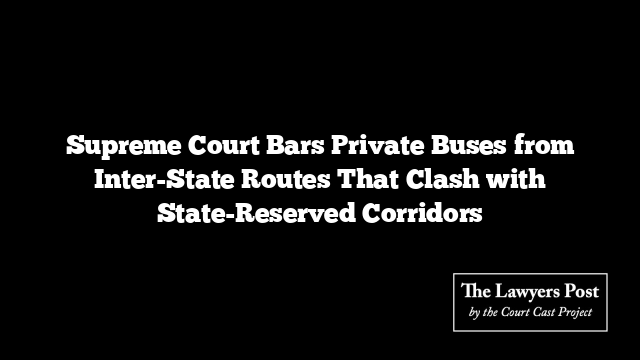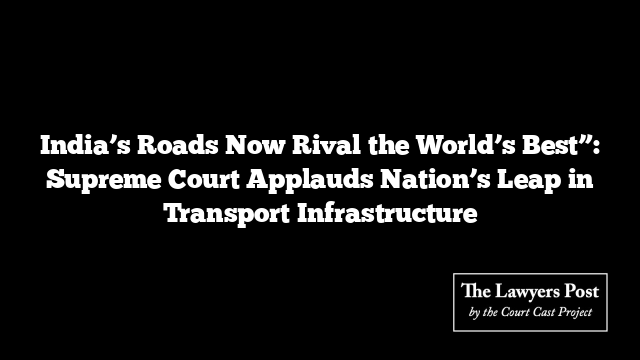The Supreme Court has drawn a firm line on India’s transport map—private buses cannot roll over routes already reserved for state undertakings, even if those paths cross state borders under mutual transport agreements.
A Bench comprising Justice Dipankar Datta and Justice Augustine George Masih overturned a ruling from the Gwalior Bench of the Madhya Pradesh High Court, which had earlier allowed private operators from Madhya Pradesh to run buses into Uttar Pradesh under a 2006 reciprocal transport agreement. The apex court said this arrangement had no legal force where the routes overlapped those already earmarked for the Uttar Pradesh State Road Transport Corporation (UPSRTC).
The dispute traces back to the Inter-State Reciprocal Transport (IS-RT) Agreement between Madhya Pradesh and Uttar Pradesh, which divided routes into two categories: those open to private players and those exclusively meant for state-run buses. When Madhya Pradesh’s state transport service halted operations on certain routes, private bus operators claimed a right to fill the gap. Madhya Pradesh authorities agreed, but Uttar Pradesh refused to countersign the permits—setting off years of legal wrangling.
The Supreme Court, however, held that the High Court had erred in supporting the private operators. It ruled that an inter-state transport agreement is merely an instrument, not a law, and cannot override the statutory scheme laid out under Chapter VI of the Motor Vehicles Act, 1988.
“An IS-RT Agreement between two States is not law—it cannot undo the framework of approved transport schemes and notified routes envisaged in Chapter VI,” Justice Datta wrote in the judgment. Consequently, no private operator can be allowed to operate on any part of a route already covered by a notified state transport route.
The Bench also took both state governments to task for what it called a “lack of application of mind” and poor coordination that left public transport passengers caught between bureaucratic indecision and overlapping jurisdictions.
The judges noted that reciprocal transport arrangements are meant to enhance connectivity and serve public interest—not create administrative chaos. They urged both states to reconvene at the table and chalk out a practical solution that ensures smooth, lawful inter-state travel without undermining state-notified routes.
In essence, the ruling restores primacy to the state transport corporations and reaffirms that convenience or cooperation between states cannot supersede the hierarchy established by the Motor Vehicles Act.




